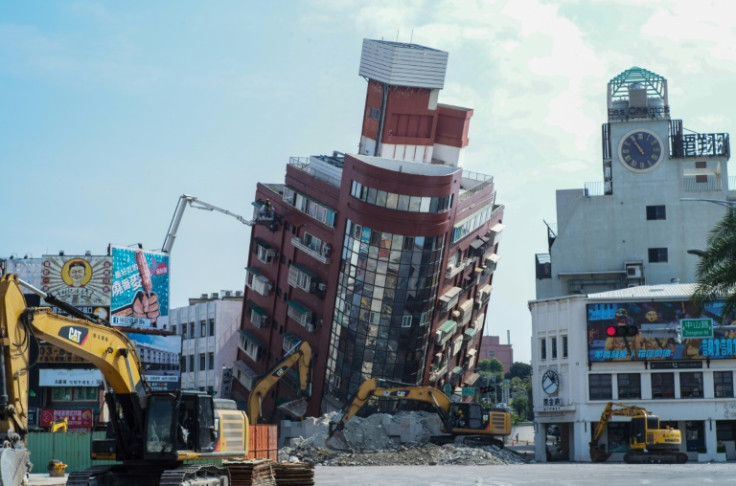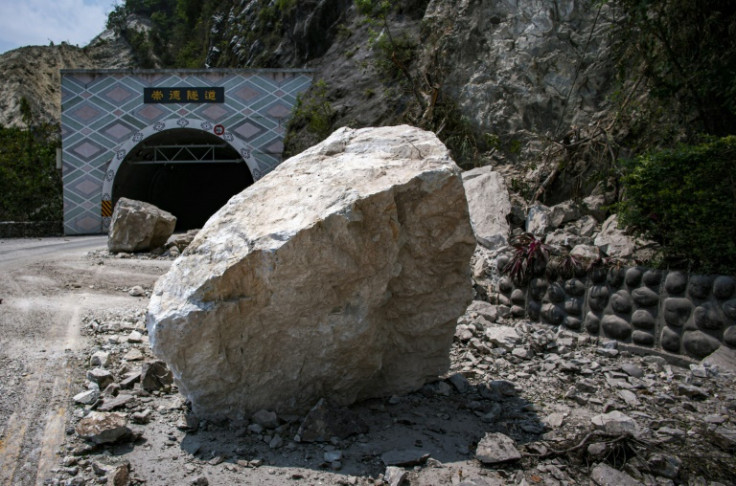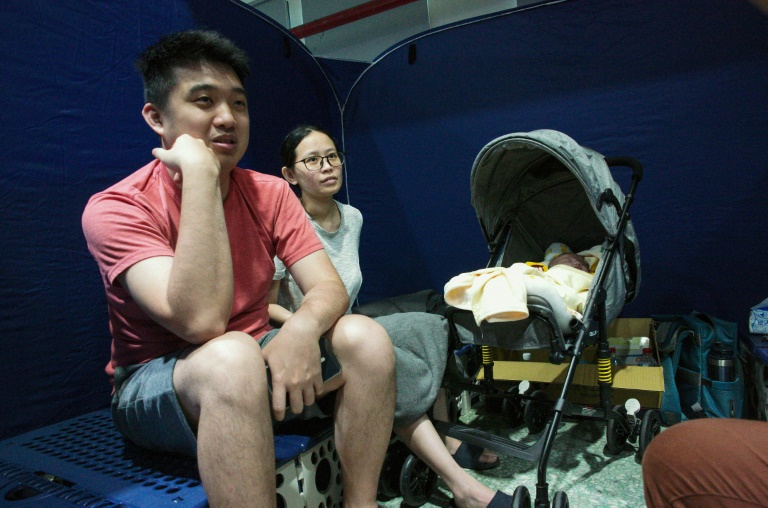Relief workers set aside stuffed toys, blankets and baby formula for families sheltering Thursday in an elementary school in Hualien, the epicentre of Taiwan’s biggest earthquake in a quarter of a century.
“We have all the necessary stuff — blankets, toilet and a place to rest,” said Indonesian Hendri Sutrisno, who occupied a tent with his wife and two-month-old baby.
The 30-year-old professor at Hualien’s Dong Hwa University and his family were among more than 100 people who chose to stay in tents set up at an elementary school after a 7.4 magnitude earthquake hit Taiwan on Wednesday.
The aftershocks of the quake — the biggest since a 7.6 magnitude disaster in 1999 killed 2,400 people — came thick and fast, and by Thursday morning Hualien had experienced more than 300 rolling tremors.
Hendri said he and his wife hid under a table with their baby when the first quake hit, before grabbing their things and fleeing the building.
“Our worry is when the big aftershocks happen it might be really hard for us to evacuate one more time — especially with the baby,” he told AFP.
“So it will be better, wiser for us to stay here,” he said as the infant slept in a stroller.
Rescue efforts continued elsewhere across the county, with authorities working to reach more than 600 people either trapped in strongly built tunnels or cut off in remote areas — though they were believed to be safe.
Hualien county, on Taiwan’s eastern coast, is home to a network of tunnels that allow drivers to traverse the region’s picturesque mountains.
The bulk of the people trapped include some in a hotel near Taroko National Park, as well as workers in a nearby tunnel — now completely cut off after a series of landslides hit the main highway leading to it.
Footage captured by a drone of an open-cut tunnel in a mountain released by Taiwan’s National Fire Agency showed people waving, standing unharmed next to damaged vehicles.
Authorities had cordoned off a section of Su Hua highway on Thursday, the site of a massive landslide that killed two drivers the day before when they were crushed by falling boulders.
Massive rocks blocked road tunnels, while uprooted trees could be seen on the cliffs by the highway still shrouded with clouds of dust.
The quake killed at least nine people and injured more than 1,064, although authorities did not specify how seriously.
In Hualien’s main city, workers poured concrete at the base of the glass-fronted Uranus building — so badly damaged it now tilts at a 45-degree angle.
It has now become a symbol for the quake but, for 59-year-old Chen Hsiu-ying, it was her home.
Sheltering at the elementary school, she told AFP she was on her way home from work when the earthquake occurred.
“If I had gone back earlier, I would have been inside,” the carpenter said.
She also said she was shocked to see the road shaking and the food vendors on the streets shuddering during the quake.
“My hands are still shaking, they still haven’t recovered. This was the first time I experienced this,” Chen said, adding that she was anxious to get her things from the skewed building.
“I still have my belongings in there, such as a photo of my mother,” she said.
More than a dozen people had opted to return home by morning, although many — especially those with children — stayed on in the tents.
Hendri said he was hoping Thursday would be the family’s last day at the shelter.
“Yesterday they said it wasn’t safe.”
AFP

AFP

AFP








 Should resignations be a noisy affair?
Should resignations be a noisy affair?